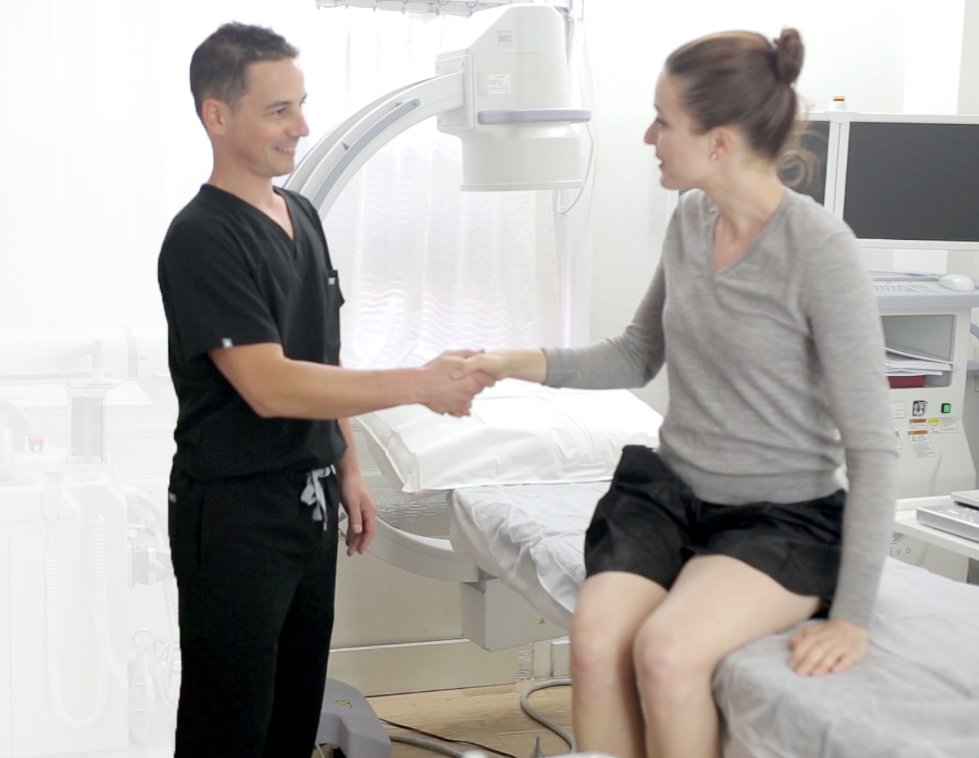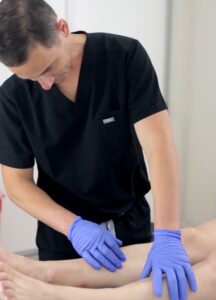The Advantage of Visiting a Vein Center: What Kind of Doctor Treats Varicose Veins?
Varicose veins are not just a cosmetic concern; they can cause significant discomfort and lead to more serious health issues if left untreated. Knowing what kind of doctor treats varicose veins is crucial for getting the right care. A specialized facility like a vein center offers comprehensive treatment options for these issues. This article will explore the advantages of visiting a vein center and the expertise of the doctors who treat varicose veins.
What Is a Vein Center?
A vein center is a specialized medical facility dedicated to diagnosing and treating venous disorders, including varicose veins, spider veins, deep vein thrombosis, and chronic venous insufficiency. These centers are staffed by medical professionals who specialize in phlebology, vascular surgery, or interventional radiology. The primary focus is on providing comprehensive, minimally invasive treatments tailored to the individual needs of patients with venous conditions.
Advantages of Visiting a Vein Center
Visiting a vein center has several advantages over seeking treatment from a general practitioner or other healthcare providers. These advantages include specialized care, advanced treatment options, and a comprehensive approach to managing venous disorders.

Specialized Care
One of the main advantages of visiting a vein center is the specialized care provided by experienced doctors. Understanding what kind of doctor treats varicose veins is essential for receiving effective treatment. At a vein center, you will typically find:
- Phlebologists: These are doctors who specialize in the diagnosis and treatment of vein disorders. Phlebologists use various techniques, including ultrasound, to evaluate vein health and determine the best course of treatment.
- Vascular Surgeons: These specialists are trained to perform surgical procedures on veins and arteries. They handle more complex cases that may require surgical intervention.
- Interventional Radiologists: These doctors use imaging techniques to guide minimally invasive procedures. They are experts in performing treatments such as sclerotherapy and endovenous laser therapy.
Advanced Treatment Options
Vein centers offer a range of advanced treatment options that are often not available at general medical practices. These treatments are designed to be minimally invasive, reducing recovery time and increasing the success rate. Common treatments available at vein centers include:
- Sclerotherapy: This procedure involves injecting a solution directly into the varicose vein, causing it to collapse and eventually be reabsorbed by the body. It is effective for treating both varicose and spider veins.
- Endovenous Laser Therapy (EVLT): This treatment uses laser energy to close off varicose veins. A small laser fiber is inserted into the vein, and the laser's heat causes the vein to collapse and seal shut.
- Radiofrequency Ablation: Similar to EVLT, this procedure uses radiofrequency energy to heat and close varicose veins. It is a minimally invasive option with a high success rate.
- Ambulatory Phlebectomy: This surgical procedure involves making small incisions to remove varicose veins. It is typically performed under local anesthesia and is suitable for larger veins that cannot be treated with sclerotherapy or laser therapy.
Comprehensive Approach
A vein center provides a comprehensive approach to treating venous disorders. This means that all aspects of your vein health are considered, from initial diagnosis to post-treatment care. The process typically involves:
- Consultation and Diagnosis: The first step is a thorough consultation and diagnostic evaluation, often using ultrasound imaging to assess the extent of venous disease.
- Personalized Treatment Plan: Based on the diagnosis, a personalized treatment plan is developed to address your specific condition and needs.
- Minimally Invasive Treatment: Most treatments at a vein center are minimally invasive, meaning they involve less pain, shorter recovery times, and lower risks of complications compared to traditional surgery.
- Follow-up Care: After treatment, regular follow-up appointments ensure that the condition is effectively managed and any potential issues are promptly addressed.
Understanding What Kind of Doctor Treats Varicose Veins
Understanding what kind of doctor treats varicose veins can help you make informed decisions about your care. Here’s a closer look at the specialists you might encounter at a vein center:

Phlebologists
Phlebologists are doctors who focus exclusively on vein disorders. They have extensive training in the diagnosis and treatment of conditions such as varicose veins, spider veins, and chronic venous insufficiency. Phlebologists use a variety of diagnostic tools, including duplex ultrasound, to evaluate vein function and structure. They are skilled in performing minimally invasive treatments like sclerotherapy and endovenous laser therapy.
Vascular Surgeons
Vascular surgeons are experts in surgical and non-surgical treatments of veins and arteries. They handle more complex venous disorders that may require surgical intervention. Vascular surgeons perform procedures such as vein stripping, ambulatory phlebectomy, and complex reconstructions. Their extensive training and experience make them well-equipped to manage severe cases of varicose veins and other venous conditions.
Interventional Radiologists
Interventional radiologists specialize in using imaging techniques to guide minimally invasive procedures. They perform treatments such as endovenous laser therapy and radiofrequency ablation with precision. Using real-time imaging, they can accurately target and treat varicose veins, ensuring effective results with minimal discomfort and downtime for patients.
The Importance of Early Intervention
Early intervention is crucial for effectively managing varicose veins and preventing complications. When left untreated, varicose veins can lead to chronic pain, swelling, skin changes, and even ulcers. By seeking treatment at a vein center, you can benefit from early diagnosis and prompt treatment, which can:
- Reduce Symptoms: Early treatment can alleviate symptoms such as pain, heaviness, and swelling, improving your overall quality of life.
- Prevent Complications: Treating varicose veins early can prevent more serious complications, such as deep vein thrombosis and chronic venous insufficiency.
- Improve Aesthetic Appearance: Addressing varicose veins can improve the appearance of your legs, boosting your confidence and self-esteem.
- Enhance Mobility: Reducing discomfort and swelling can enhance your mobility and allow you to participate in daily activities without pain.
Choosing the Right Vein Center
Selecting the right vein center is an important decision that can significantly impact your treatment outcomes. Here are some factors to consider when choosing a vein center:
Experience and Expertise
Look for a vein center with experienced and board-certified specialists. Check their credentials and the types of treatments they offer. A center with a team of phlebologists, vascular surgeons, and interventional radiologists can provide comprehensive care.
Advanced Technology
Choose a vein center that uses the latest technology and treatment methods. Advanced diagnostic tools and minimally invasive treatments can improve accuracy and outcomes.
Patient Reviews and Testimonials
Read patient reviews and testimonials to get a sense of the quality of care provided by the vein center. Positive feedback from other patients can give you confidence in your choice.
Personalized Care
Select a vein center that offers personalized care tailored to your specific needs. A thorough consultation and individualized treatment plan are essential for effective results.
Conclusion
Understanding what kind of doctor treats varicose veins is key to receiving effective and specialized care. Vein centers offer numerous advantages, including access to experienced specialists, advanced treatment options, and a comprehensive approach to venous health. Early intervention and choosing the right vein center can significantly improve your quality of life and prevent complications. If you are experiencing symptoms of varicose veins or other venous disorders, consider visiting a vein center for expert evaluation and treatment.
Comments
Post a Comment